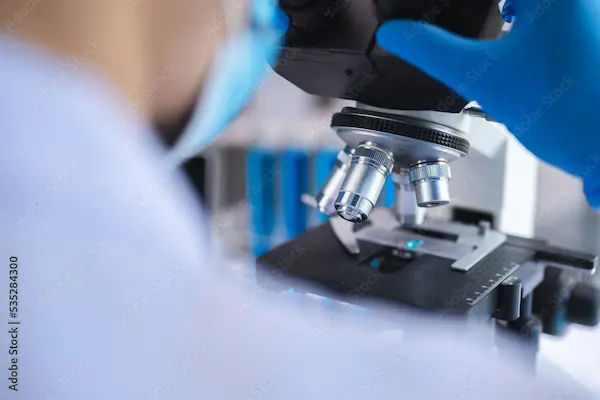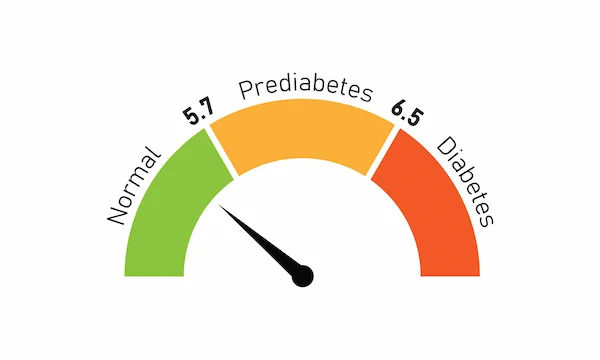Symptoms and Tests for Neonatal Screening
Know about the neonatal screening, conditions detected by it, symptoms,why early screening, advantages of it, and tips for parents.


Introduction
Welcoming a newborn into the world is a joyous occasion, but it also comes with the responsibility of ensuring your baby’s health. Neonatal screening is a crucial step in detecting potential health conditions early, even before symptoms appear. Early detection can make a significant difference in your baby’s long-term well-being.
In this article, we’ll discuss the importance of neonatal screening, common conditions tested for, symptoms to watch for, and how these tests are performed.
What is Neonatal Screening?
Neonatal screening, also known as newborn screening, is a set of tests performed shortly after birth to identify babies at risk for certain genetic, metabolic, hormonal, or functional disorders. Many of these conditions may not show immediate symptoms but can cause serious health problems if left untreated.
Early diagnosis through screening allows doctors to start treatment early, preventing complications and improving the child’s quality of life.
Consult a Gynaecologist for Personalised Advice
Common Conditions Detected in Neonatal Screening
Newborn screening tests vary by country and region, but some common conditions screened for include:
1. Phenylketonuria (PKU) – A metabolic disorder that affects how the body processes protein.
2. Congenital Hypothyroidism – A condition where the thyroid gland doesn’t produce enough hormones, affecting growth and brain development.
3. Sickle Cell Disease – A blood disorder that can cause pain, infections, and other complications.
4. Cystic Fibrosis – A genetic disorder affecting the lungs and digestive system.
5. Galactosemia – A condition where the body cannot process galactose, a sugar found in milk.
6. Hearing Loss – Early detection helps in managing hearing impairments.
7. Critical Congenital Heart Disease (CCHD) – Some heart defects may not be visible at birth but can be life-threatening.
Symptoms to Watch For
While neonatal screening helps detect issues before symptoms appear, some babies may still show signs of underlying conditions. Parents should watch for:
- Poor feeding or difficulty breastfeeding
- Excessive sleepiness or low energy
- Jaundice (yellowing of skin and eyes) lasting beyond two weeks
- Unusual body odour (sweet or musty smell, which could indicate metabolic disorders)
- Seizures or abnormal movements
- Breathing difficulties or rapid breathing
- Delayed growth or developmental milestones
If you notice any of these signs, consult your paediatrician immediately.
How is Neonatal Screening Done?
Neonatal screening is simple, quick, and minimally invasive. Here’s what to expect:
1. Heel Prick Test (Blood Spot Test) – A small blood sample is taken from the baby’s heel and sent to a lab for analysis. This test checks for metabolic and genetic disorders.
2. Hearing Test – A soft earphone or microphone is placed in the baby’s ear to check for hearing ability.
3. Pulse Oximetry Test – A small sensor is placed on the baby’s skin to measure oxygen levels in the blood, helping detect heart defects.
These tests are usually done within 24 to 48 hours after birth. If any results are abnormal, further testing will be recommended.
Why is Early Screening Important?
Many conditions detected in neonatal screening do not show symptoms right away but can cause severe complications if untreated. For example:
- PKU can lead to intellectual disabilities if not managed with a special diet.
- Congenital Hypothyroidism can cause stunted growth and developmental delays without early hormone treatment.
- Sickle Cell Disease can lead to infections and organ damage if not monitored.
Early intervention can prevent these complications, ensuring your baby grows up healthy.
What Happens If a Test is Positive?
If a screening test comes back positive, it doesn’t always mean your baby has the condition—it just means more testing is needed. Your doctor will guide you through follow-up tests and treatment options if necessary.
Tips for Parents
Tips for parents include:
- Ask about screening tests – Ensure your baby undergoes all recommended screenings before leaving the hospital.
- Follow up on results – If any test is abnormal, follow your doctor’s advice promptly.
- Monitor your baby’s health – Even if screening results are normal, stay alert for any unusual symptoms.
- Breastfeed if possible – Breast milk supports your baby’s immune system and overall health.
- Attend regular check-ups – Regular pediatric visits help track your baby’s growth and development.
Final Thoughts
Neonatal screening is a simple yet powerful tool to safeguard your baby’s health. By detecting hidden conditions early, you can take the right steps to ensure your child grows up strong and healthy. As a parent, staying informed and proactive is the best way to give your little one the best start in life.
Consult a Gynaecologist for Personalised Advice
Consult a Gynaecologist for Personalised Advice

Dr. Mona Yadav
Obstetrician and Gynaecologist
19 Years • MBBS, MD (Obstetrics & Gynaecology)
Dombivli
Nulife multispeciality, Dombivli

Dr. Harshitha B R
Obstetrician and Gynaecologist
11 Years • MBBS, DGO( OBS & GYN)
Bengaluru
Apollo Clinic, JP nagar, Bengaluru

Dr. Ramya G S
Obstetrician and Gynaecologist
11 Years • MBBS, DGO - Obstetrics & Gynaecology, DNB - Obstetrics & Gynaecology
Bengaluru
Apollo Clinic, JP nagar, Bengaluru

Dr. Soumya P
Obstetrician and Gynaecologist
6 Years • MBBS,MS (OBST & GYNAE)
Bengaluru
Apollo Clinic, JP nagar, Bengaluru

Dr. Parul Sharma
Obstetrician and Gynaecologist
8 Years • MBBS, MS (Obstetrics & Gynaecology)
New Delhi
THE DOCTORS NESST, New Delhi
Consult a Gynaecologist for Personalised Advice

Dr. Mona Yadav
Obstetrician and Gynaecologist
19 Years • MBBS, MD (Obstetrics & Gynaecology)
Dombivli
Nulife multispeciality, Dombivli

Dr. Harshitha B R
Obstetrician and Gynaecologist
11 Years • MBBS, DGO( OBS & GYN)
Bengaluru
Apollo Clinic, JP nagar, Bengaluru

Dr. Ramya G S
Obstetrician and Gynaecologist
11 Years • MBBS, DGO - Obstetrics & Gynaecology, DNB - Obstetrics & Gynaecology
Bengaluru
Apollo Clinic, JP nagar, Bengaluru

Dr. Soumya P
Obstetrician and Gynaecologist
6 Years • MBBS,MS (OBST & GYNAE)
Bengaluru
Apollo Clinic, JP nagar, Bengaluru

Dr. Parul Sharma
Obstetrician and Gynaecologist
8 Years • MBBS, MS (Obstetrics & Gynaecology)
New Delhi
THE DOCTORS NESST, New Delhi




